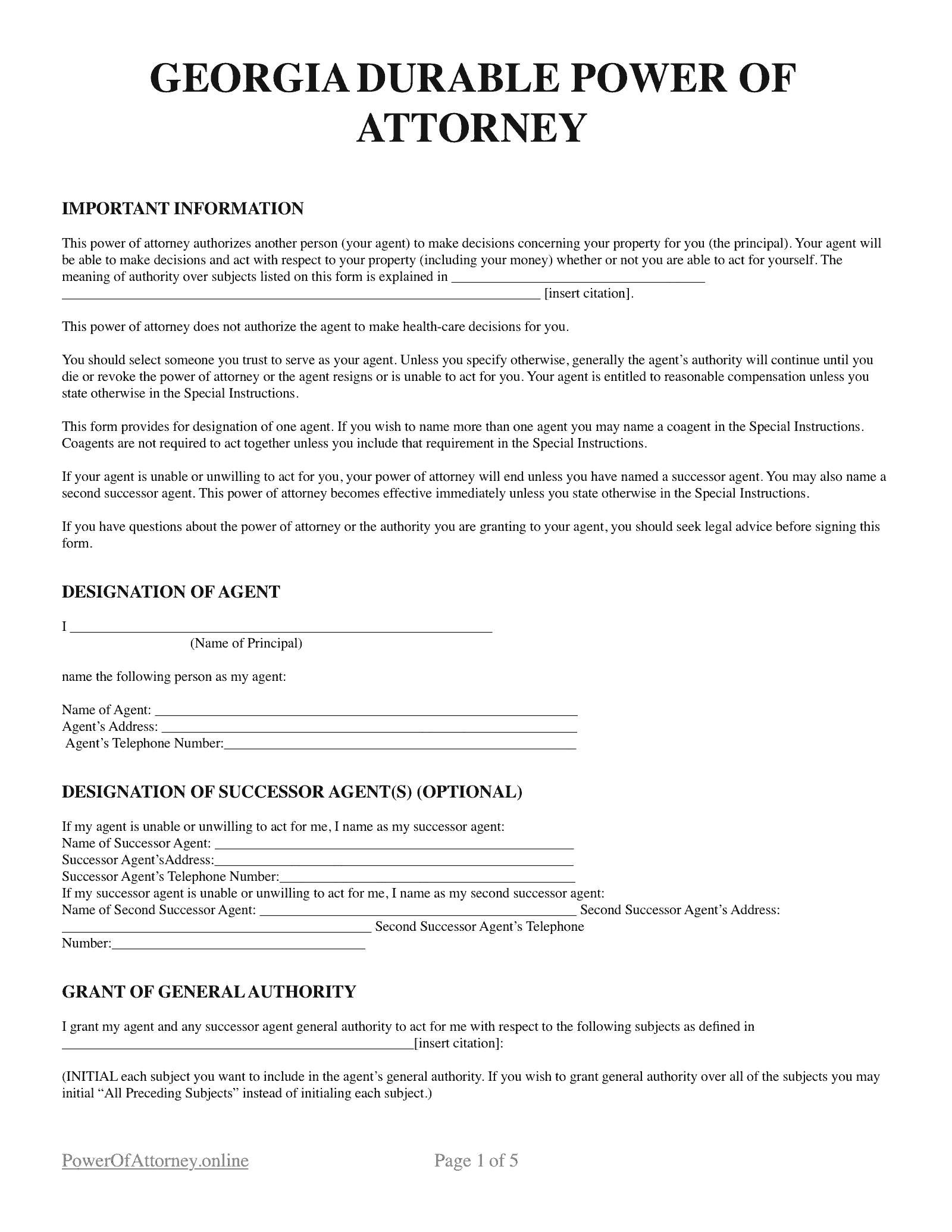Free Georgia Durable power of attorney Forms
A durable power of attorney (POA) is a legal document that allows a representative or agent to make financial, property, or healthcare decisions for a principal. Unlike other POAs that become void when the principal is physically or mentally incompetent or incapacitated, a durable POA remains valid even then.

Georgia Durable Power of Attorney Laws
Title 10, Chapter 6B of the 2020 Georgia Code states that a power of attorney shall be durable unless the document expressly states that it will expire when the principal becomes incapacitated (2020 Georgia Code § 10-6B-4).
The term “durable” means that the power of attorney remains valid even if the principal becomes incapacitated (2020 Georgia Code § 10-6B-2).
Signing Requirements in Georgia
A Georgia power of attorney must be signed by the principal, one or more witnesses, and a notary public or another person who is authorized to administer oaths. The witness or witnesses cannot be the agent mentioned in the power of attorney in question. The notary public should also not be the agent or witness.
If the principal is unable to sign the document, they may ask another person to sign their name for them.
The principal, agent, witness (or witnesses), and notary public must all be present when the power of attorney is signed (2020 Georgia Code § 10-6B-5).
How To Write a Durable POA in Georgia
Writing a Georgia Durable power of attorney is not as complicated as one might think. Here are the three main steps you need for a durable power of attorney in Georgia:
1. Download the Durable POA Form
Download the template of the durable power of attorney form.
2. Fill Out the Form
Complete all the details in the form. You will have to fill in information such as the following:
- Your (the principal’s) full name
- Your (the principal’s) address, phone number, and email
- The city, county, and state where the signing of the POA will take place
- The full name of the agent or co-agents whom you want to grant permission and who acts on your behalf
- The address, phone number, and email of the agent or co-agents
- The powers you want to grant to the agent or co-agents
- The special powers you want to grant to the agent or co-agents such as creating or changing an inter vivos trust, survivorship rights, a beneficiary designation, etc.
- Special instructions that expand or restrict the powers of the agent or co-agents
- Compensation for the services of the agent or co-agents
- Appointment of a successor agent
- Nomination of a guardian or conservator
- The durability of the POA
- The details of the person preparing the POA
- The full name, address, phone number, and email of the witness or witnesses
- The effective date of the POA
3. Sign the Form
Once you complete the form, check all the information to make sure that all the facts are correct. Sign it in the presence of one or more witnesses and a notary public. These parties must also sign the form in your presence for the power of attorney to become valid.
The witnesses will need to read the declarations above their signature lines to ensure they are familiar with and accept their responsibilities. After reading and signing, the witnesses must add their addresses in the spaces below the signature lines. The notary public will also supplement additional relevant facts and add their credentials for the notary process. Your POA is now complete.